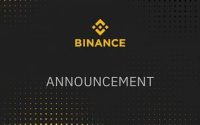zkSync Founder Proposes Ethereum L1 Court
Alex Gluchowski, the founder of zkSync has brought to the forefront a pressing concern that has long plagued DeFi ecosystems – the inherent vulnerabilities tied to smart contract implementations. In response, he has proposed a pioneering concept: employing Ethereum’s Layer 1 (L1) blockchain as a “Court of Final Appeal” for the resolution of disputes and emergent crises within DeFi protocols.
Smart contract implementation risks remain the biggest unsolved problem of Defi. L2s are equally affected.
Let me pitch an idea: L1 Fork as the Court of Final Appeal.
First, why existing solutions don't work:
1) Time-locked upgrades are great for scheduled changes, but… pic.twitter.com/EcaogkZBH9
— Alex G. ∎ (@gluk64) September 2, 2023
Ethereum L1 Fork
Alex commenced the discussion by shedding light on the inadequacies of current solutions. He pointed out that while time-locked upgrades prove effective for planned modifications, they fall short in urgent circumstances. The alternative strategy of transitioning to different Layer 1 blockchains, he argued, only exacerbates existing problems without providing a viable remedy. Moreover, he noted that security councils, though capable of mitigating risks, introduce their own set of regulatory and security complications. On the other hand, combined governance mechanisms remain susceptible to malicious takeovers.
The crux of Alex’s proposal revolves around the novel idea of forking Ethereum’s L1 blockchain itself. This approach would grant users the freedom to select the fork branch they deem to be the correct and authoritative one, mirroring the way users can opt for different Layer 1 blockchains. Nevertheless, Alex acknowledged that this strategy could potentially encounter scalability hurdles and the risk of overburdening Ethereum’s social consensus, as previously cautioned by Ethereum co-founder, Vitalik Buterin.
Redefining DeFi Governance
To surmount these intricacies, Alex recommends the establishment of a hierarchical system of onchain courts, reminiscent of real-world judicial systems. Under this framework, each DeFi protocol would be endowed with its governance structure, complete with mechanisms to facilitate both routine and emergency upgrades. Furthermore, DeFi protocols would be mandated to designate a particular contract to function as an appellate instance, necessitating the implementation of a standardized ERC interface.
In cases involving emergency upgrades, an appeal period would be triggered, affording any interested party the opportunity to contest the decision by depositing a predefined amount. These onchain courts, characterized by their decentralized nature, would comprise diverse members, pricing structures, and reputations. Crucially, each court would be obliged to specify a higher court for appeals, ultimately culminating in the establishment of the “Ethereum Supreme Court.” The ultimate verdict of this highest court would be determined through a soft fork of Ethereum’s Layer 1 blockchain.
Vision for DeFi Resilience
The primary objective of this groundbreaking system is to shield DeFi protocols from external political interference, acting as a potent deterrent mechanism. By ensuring that only exceptional cases reach the Ethereum Supreme Court, this approach guarantees the active engagement of the entire Ethereum social consensus.
Read More: zkPass Launches Pre-Alpha Testnet
Alex underscores that this innovative system holds the potential to elevate Ethereum’s status as a resilient network state and fortify its position within the DeFi landscape. While it remains open for anyone to deploy such a contract, the proposal encourages the formation of a social consensus around a “canonical” instance of the court, strategically configured to be prohibitively costly to use, thereby guaranteeing that only the most critical cases find their way to it.



